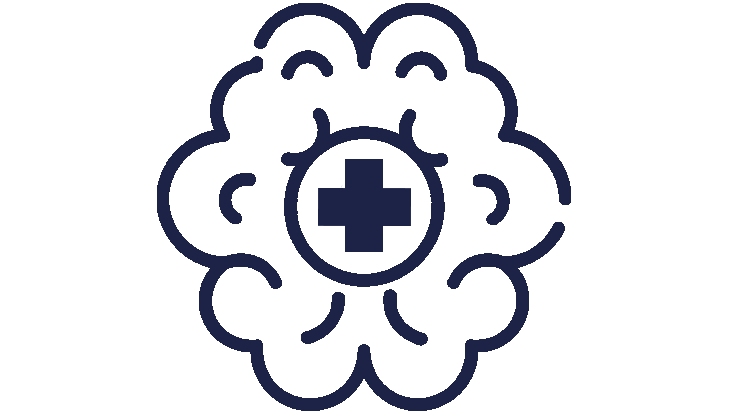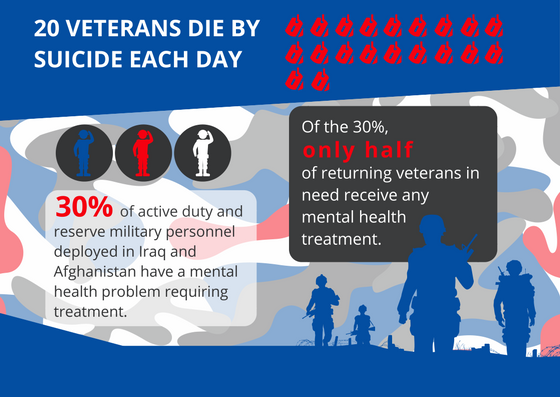Advocating for mental health resources and services is crucial for veterans. It helps them cope with challenges after military service.
Many veterans face issues like PTSD, depression, and anxiety. These conditions can affect their daily lives and relationships. Mental health support plays a vital role in a veteran’s recovery. It can provide a safe space for them to express feelings.
Access to resources helps them find treatment and build a support network. Many veterans struggle to adjust after returning to civilian life. They often feel isolated or misunderstood. By advocating for better mental health services, we can raise awareness and create a stronger support system. This is not just important; it’s necessary for their well-being and reintegration into society.

Credit: www.jbmdl.jb.mil
The Plight Of Veterans Post-service
The transition from military to civilian life can be tough. Many veterans face significant challenges. They might feel lost or unsure of their next steps. This can lead to mental health issues such as anxiety and depression.
Feeling isolated is common. Veterans often miss the camaraderie of service. Finding new friendships can be hard. Many struggle to adapt to civilian norms.
Statistics show that over 20% of veterans suffer from PTSD. This is a serious issue. It affects their daily lives and relationships. Access to mental health resources is crucial. It can help veterans heal and regain their strength.
Understanding Mental Health In A Military Context
Mental health is very important for veterans. Many face challenges after serving. Combat exposure can lead to serious issues.
Some common psychological effects include anxiety and depression. Veterans may feel isolated. They often struggle to adjust to civilian life.
Service-related injuries can cause more than just physical pain. Emotional wounds are just as real. Veterans need support to heal.
Access to mental health resources is crucial. It helps veterans deal with their experiences. Support can come from friends, family, and professionals.
Barriers To Seeking Mental Health Care
Many veterans face stigma within military culture. They worry about how others will view them. This fear stops them from seeking help. It makes them feel weak or ashamed.
Logistical and financial hurdles also exist. Veterans may find it hard to access care. Long wait times can discourage them. Costs for treatment can be high. This adds stress and makes it harder to ask for help.
Understanding these barriers is vital. It helps create better support for veterans. They need safe spaces to talk about mental health. Resources must be available and easy to reach.

Credit: www.wgh.org
The Role Of Advocacy In Bridging Gaps
Advocating for mental health resources helps veterans. It raises awareness about their needs. Many people do not understand these needs. Changing perceptions is very important. It helps society see veterans differently.
Lobbying for policy changes can lead to better services. More funding means more help for veterans. This support can change lives. Veterans deserve better access to mental health care.
Veterans’ Access To Mental Health Resources
Veterans face many challenges. They need good mental health services. Right now, many veterans do not get help. The current state of services is not enough. Some veterans wait a long time for care. Others do not know how to get help.
Successful programs show what can work. Some programs offer group therapy. This helps veterans connect with others. Programs also provide one-on-one counseling. This gives personal support. Many programs focus on community and peer support. These are very effective.
| Program | Focus Area | Success Rate |
|---|---|---|
| Peer Support Groups | Connection | High |
| Individual Therapy | Personal Issues | Medium |
| Family Support Programs | Family Issues | High |

Credit: www.mentalhealthfirstaid.org
Community Support And Nonprofit Organizations
Community support plays a big role in helping veterans. Local initiatives bring people together. They help veterans feel less alone. Peer support networks offer a safe space. Veterans can share their stories and feelings.
Nonprofit organizations also help veterans. They provide mental health resources and services. These groups often focus on local needs. They understand what veterans face in their area. Support from these groups can be life-changing. It builds a strong community around veterans.
| Type of Support | Description |
|---|---|
| Peer Support | Veterans share experiences with each other. |
| Workshops | Learning sessions for coping skills and strategies. |
| Hotlines | 24/7 help for those in crisis. |
The Crucial Role Of Family And Friends
Family and friends play a key role in helping veterans. They can create a safe and supportive home. This helps veterans feel cared for and understood.
Recognizing signs of distress is very important. Look for changes in mood or behavior. Notice if they seem sad, angry, or withdrawn. These signs may mean they need help.
Listening without judgment is vital. Offer your support and understanding. Encourage open talks about feelings. This can help veterans feel less alone.
Being patient is also important. Healing takes time. A loving home can make a big difference in their journey.
Advancing The Future Of Veteran Mental Health
Supporting mental health for veterans is very important. Many veterans face unique challenges. They often deal with trauma and stress from their service. Better resources can help them heal.
Innovations in treatment are changing lives. New methods and tools help veterans. Telehealth services allow easy access to care. This means veterans can get help from home.
Research is key for better support. Ongoing studies show what works best. Advocacy pushes for more funding and resources. Veterans deserve the best care available.
Frequently Asked Questions
Why Is Mental Health Advocacy Vital For Veterans?
Advocating for mental health is crucial for veterans. Many face unique challenges, including PTSD, depression, and anxiety. Access to mental health resources can significantly improve their quality of life. Advocacy ensures that veterans receive the support and services they deserve, helping them reintegrate into civilian life successfully.
What Mental Health Resources Are Available For Veterans?
Veterans have access to various mental health resources. The Department of Veterans Affairs offers counseling, hotlines, and support groups. Community organizations also provide services tailored to veterans’ needs. These resources help address issues like PTSD, depression, and anxiety, fostering a healthier transition back to civilian life.
How Does Mental Health Impact Veterans’ Lives?
Mental health significantly impacts veterans’ lives. Many veterans experience challenges that affect relationships, work, and overall well-being. Untreated mental health issues can lead to substance abuse and homelessness. Prioritizing mental health care is essential for improving their quality of life and ensuring their successful reintegration.
Why Should We Prioritize Veterans’ Mental Health Services?
Prioritizing veterans’ mental health services is essential for several reasons. Veterans face unique stressors that can lead to mental health issues. Access to proper services can prevent severe consequences, including suicide. Ensuring these services are available highlights our commitment to supporting those who served our country.
Conclusion
Veterans deserve access to mental health resources. Their sacrifices should not lead to struggles. Supporting mental health services helps veterans heal and thrive. Awareness can reduce the stigma around seeking help. Communities must come together to advocate for these resources.
By prioritizing mental health, we honor our veterans. They fought for our freedom; now, we can fight for their well-being. Everyone benefits when veterans receive the care they need. Together, we can make a difference in their lives. Let’s stand up for our heroes and ensure they get the support they deserve.

















